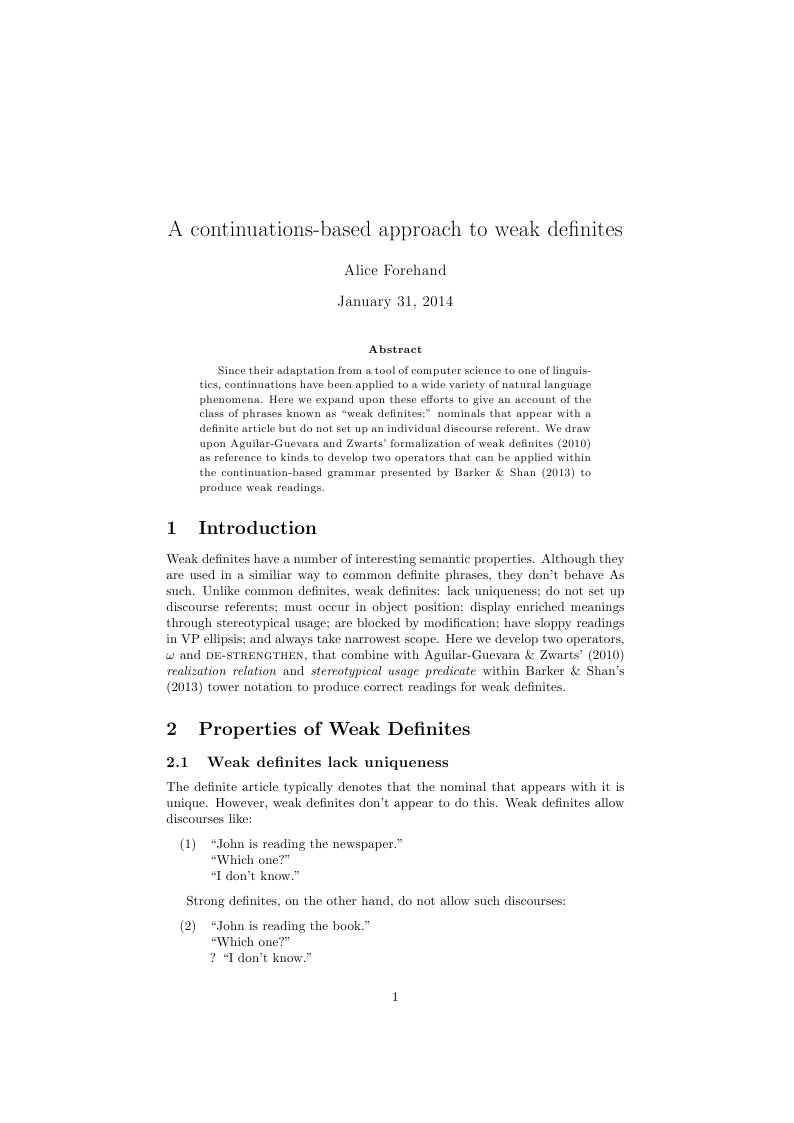
A continuations-based approach to weak definites
Författare:
Alice Forehand
Last Updated:
för 12 år sedan
Licens:
Other (as stated in the work)
Sammanfattning:
Since their adaptation from a tool of computer science to one of linguistics, continuations have been applied to a wide variety of natural language phenomena. Here we expand upon these efforts to give an account of the class of phrases known as ``weak definites:'' nominals that appear with a definite article but do not set up an individual discourse referent. We draw upon Aguilar-Guevara and Zwarts' formalization of weak definites (2010) as reference to kinds to develop two operators that can be applied within the continuation-based grammar presented by Barker & Shan (2013) to produce weak readings.

\begin
Discover why over 25 million people worldwide trust Overleaf with their work.